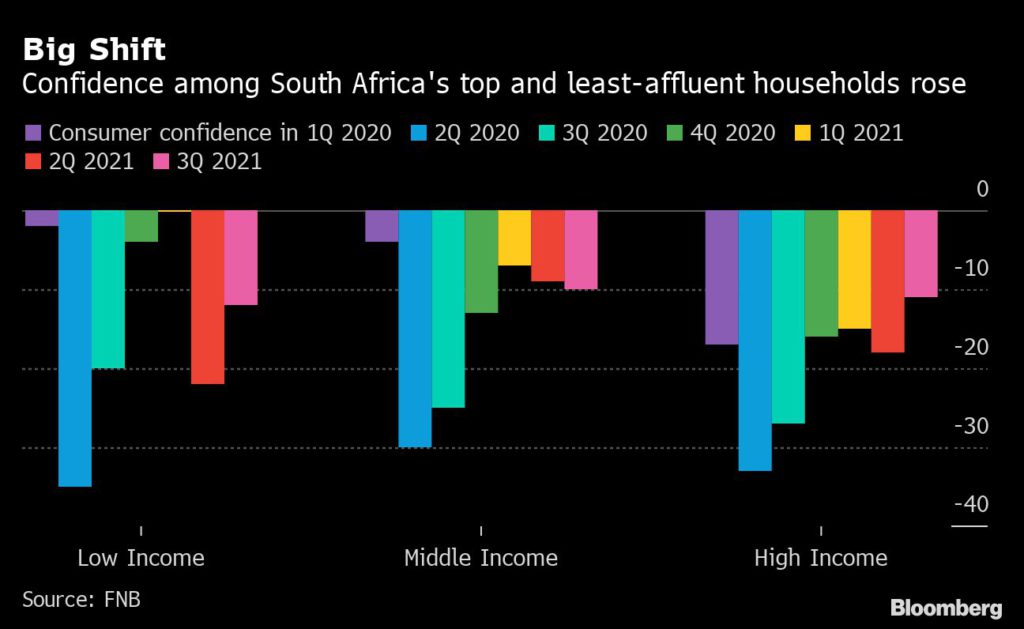(Bloomberg) — South African consumer confidence ticked up in the third quarter as the reintroduction of temporary welfare measures and a public-sector wage deal countered the adverse impacts of deadly riots, looting and arson that disrupted supply chains and put thousands of jobs at risk.
A quarterly index measuring sentiment rose to -10 in the three months through September from -13 in the previous quarter, FirstRand Ltd.’s First National Bank said in an emailed statement Monday. The index remains below the average consumer-confidence reading of 2 since 1994 and denotes depressed sentiment, it said.
The increase was largely due to an improvement in the time-to-buy durable goods index, which rose to -29 from -36. While still deeply negative, that’s the best reading since before the pandemic, signaling that consumers are now less pessimistic about whether it’s the right time to purchase big-ticket items such as vehicles, furniture and household appliances, the lender said.
The household financial outlook index rose to 12 from 10, driven by significant improvements in confidence levels among high-income households that earn more than 20,000 rand ($1,403) a month and the least-affluent consumer group that earns less than 2,500 rand a month.
“The public sector wage agreement that was reached at the end of July in all likelihood bolstered the confidence levels of the more than a million civil servants in South Africa, most of whom fall in the high-income category,” said Siphamandla Mkhwanazi, a senior economist at FNB. While civil servants will only receive a 1.5% pay increase, the deal includes monthly non-pensionable cash allowances of as much as 1,695 rand that will be backdated and lead to a “significant boost” in September remuneration, he said.
The 10 index point increase in sentiment among low-income households was likely driven by the reinstatement of a 350 rand monthly welfare payment until the end of March for individuals affected by the riots that erupted in the eastern KwaZulu-Natal province and commercial hub of Gauteng in July, he said. The expiration of a previous round of Covid-19 relief measures “left gaping holes in the budgets of low-income households,” he said.
The speedy recovery in sentiment following the social unrest and strict virus restrictions suggests consumer spending may hold up better than expected during the second half of 2021. Since much of the resilience seems to be tied to government aid, potentially less fiscal support and changes in other factors — such as retrenchment and life insurance payouts that are propping up household finances — are risks to the outlook, Mkhwanazi said.
More stories like this are available on bloomberg.com
©2021 Bloomberg L.P.











